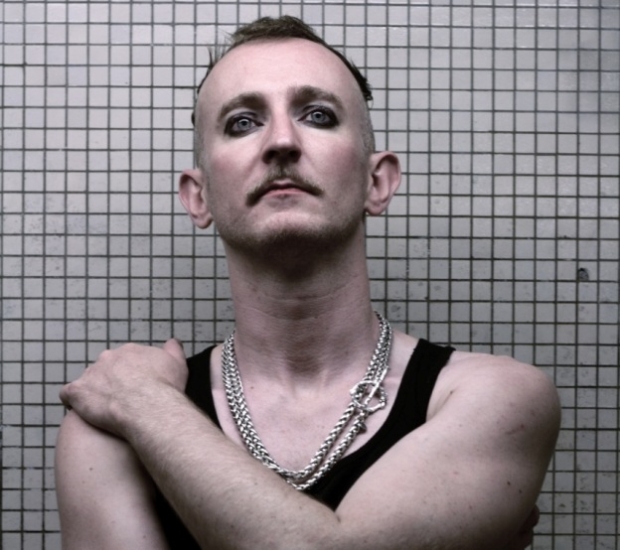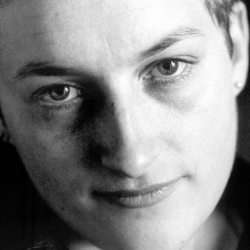
The late playwright Sarah Kane, who took her own life in 1999 at the age of 28, felt that 4.48 in the morning was a time when the mind can realise its darkest thoughts. This new operatic setting of 4.48 Psychosis is the first time any of Kane's work has been adapted, and given composer Philip Venables's strong musical language and visceral sense of theatre, it is generating intense interest among both the opera- and theatre-going public.
Venables reaches the culmination of a three-year residency at the Royal Opera House (a programme run in partnership with the Guildhall School of Music & Drama) with this new opera. Between rehearsals at the Lyric, Hammersmith he spoke to WhatsOnStage about his work and explained the process of its composition.
"I started by shadowing the rehearsal process of other operas they were putting on, particularly in the Linbury Studio where the scale and size are similar to what I’m making. That was useful because I’ve never worked with such a big house before. After that it was a case of deciding what text to use.
"At first I wanted to write an original piece with a writer—something completely new—but I didn’t have anyone in mind. When I explained to [director of opera] Kasper Holten the kind of thing I was looking for, what I was really into, he said ‘I think you’re looking for a Sarah Kane type’. And 4.48 Psychosis is ideal; it’s like a poem that’s crying out to be set. The way she wrote it, the formality of it, suits music so well.

"So we tried to get the rights to the play. None have ever been granted to any adaptation of her work before, but I met [her brother] Simon Kane and we had a great chat. He completely agreed that of all of her works 4:48 was the most suited to an adaptation, so he agreed to dip his toe in the water and let us do it."
The play is a free text that can be done with any number of actors, so has he imposed a formality on it? "Of course. We’ve decided to use six singers, but we aren’t assigning characters to them. We do have one person who is playing the main character and we have a representation of the doctor in solo arias, but mostly they're ensemble scenes. So we’re trying to keep it faithful to the text in terms of flexibility of voice.
"On the page, Kane uses indentation and spacing to represent the different voices that the character has in her head. Many times they’re contradictory. So we are trying to represent that in a conflicting internal monologue through a real polyphony of different voices."
Has he reshaped the text to suit his needs? "No. I wanted to stay very faithful to the text, not least because that’s what drew me to it in the first place. It’s not about the story – there is very little of that – it’s about the quality of the constructed language and the way it’s set out. And the formality of it."
'It deals a lot with love'
It’s not a very long play but it could well be a long opera if every word is used. "It’ll be about 90 minutes. We’ve cut the odd sentence here and there but it’s still a long libretto; the challenge was to make space for music, so that it didn’t feel like we were just rattling through it as quickly as possible. I think we’ve found ways to do that convincingly. Besides, my style, not just for this but in my previous work, has been to use a lot of spoken text. We’re using visually projected text and spoken text, so while not all of it is sung it’s pretty much all there.
"We’re using the words in as many different incarnations as we can, such as having somebody sing with their own recorded voice over the top, which I like to think of as the operatic thought bubble; and we have choral speaking and some soundscapes made of spoken word as well. I’m using speech as a musical element, not just as a narrative thing."
As a composer who’s used to collaborating with writers, hasn’t he wished he could adjust the text? "No! OK, there have been one or two places, but they are just odd sentences. The one thing that has given me absolute pleasure has been the text. Whenever I got stuck writing the music I just went back to the play and it was all there. I spent six months doing preparatory work on the play before I wrote a single note, and that stood me in good stead because I do feel the process of composition has come out of the writing itself, and that’s been very important to me in dealing with a text that is so loaded.
"Every scene is a tableau with a hard cut from one to the next, and with no explanation. I love the way different scenes are in different registers and tone of voices, jumping from lists of drugs to dense poetry to banal dialogue. And the subject matter is something that has a connection with my previous work: the representation of violence and sexuality—and the way so little of it is dialogue. I find that dialogue can be so difficult in opera, so it’s nice to set poetry. It’s a meditation on life and death and love rather than a narrative."
As it’s a study of clinical depression, is it going to be depressing to watch and listen to? "No, because there’s a lot more to it than just that. There are plenty of jokes and real black humour. We're clinging on to as much of that as we can. And it deals a lot with love. Through reflecting on the darkest moments in your thoughts it elucidates the need for happiness and love in your life, and the need to be loved and accepted by other people—and, more importantly, by yourself."
4:48 Psychosis runs at the Lyric Theatre, Hammersmith from 23-28 May.












